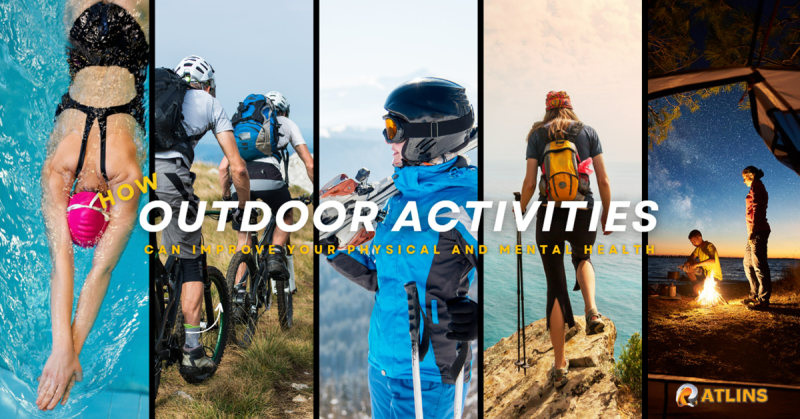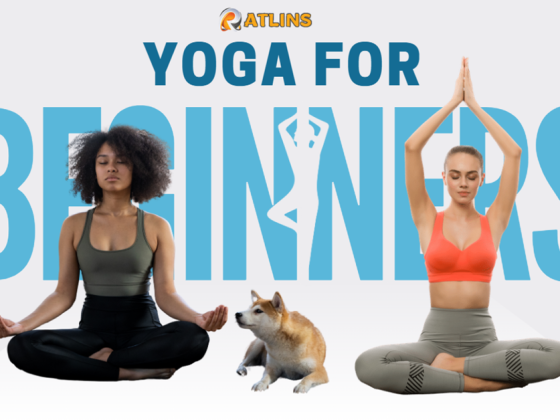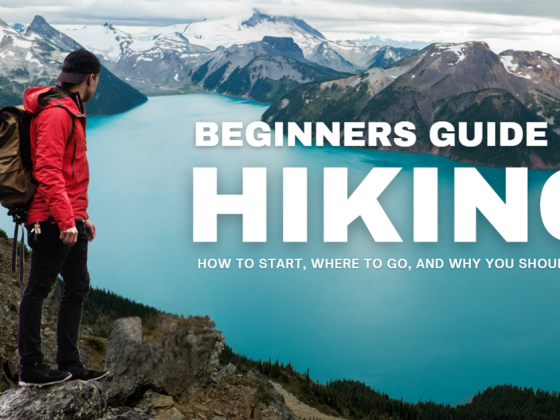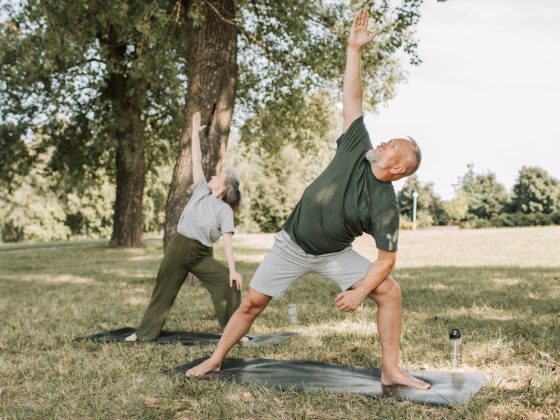Do you want to improve your physical and mental health, boost your immune system, and sleep better? If so, you might want to consider spending more time outdoors. Research shows that being in nature can have many benefits for your well-being. In this article, we will explore some of the reasons why outdoor activities are good for you and suggest some fun and easy ways to get outside and enjoy the fresh air.
Why are outdoor activities good for you?
Outdoor activities can help you stay healthy in several ways. Here are some of the main benefits of being outdoors:
- Better breathing. Indoor air can be polluted by dust, mold, chemicals, and other allergens. Outdoor air, especially in natural green spaces, can be cleaner and fresher, which can improve your respiratory health. One study found that people who lived in areas with more greenery had a lower risk of dying from respiratory diseases.
- Improved sleep. Sunlight can help regulate your circadian rhythm, which is your body’s natural clock that tells you when to feel awake or sleepy. Exposure to sunlight during the day can make you feel more tired at night, shorten the time it takes to fall asleep, and improve the quality of your sleep.
- Reduced depression symptoms. Sunlight can also boost your mood by increasing the production of serotonin, a neurotransmitter that helps you feel happy and calm. Being in nature can also reduce stress, anxiety, and negative emotions, which can contribute to depression. Some studies have shown that outdoor activities can be as effective as antidepressants in treating mild to moderate depression.
- Motivation to exercise. Being outdoors can make physical activity more enjoyable and less boring. You can also take advantage of the natural terrain, such as hills, trails, and water, to challenge yourself and vary your workout. Exercise can improve your cardiovascular health, muscle strength, bone density, and metabolism, as well as prevent or manage chronic diseases such as diabetes, obesity, and hypertension.
- Mental energy. Spending time outdoors can stimulate your brain and improve your cognitive functions, such as memory, attention, and creativity. Nature can provide you with sensory stimulation, mental relaxation, and opportunities for learning and exploration. One study found that people who walked in a park for an hour performed better on a memory test than those who walked in a city.
- Immune health. Being outdoors can expose you to beneficial microorganisms, such as bacteria and fungi, that can enhance your immune system and protect you from infections and inflammation. Some research suggests that spending time in forests can increase the activity of natural killer cells, which are white blood cells that fight cancer and viruses.
- Better vision. Spending time outdoors can prevent or delay the development of myopia, or nearsightedness, in children and adolescents. This is because outdoor light can stimulate the growth of the eye and prevent excessive elongation of the eyeball, which causes myopia. Outdoor activities can also reduce eye strain and fatigue caused by staring at screens indoors.
- Emotional wellness. Being outdoors can improve your self-esteem, confidence, and social skills. You can feel more connected to yourself, to others, and to the environment. You can also experience more positive emotions, such as joy, gratitude, and awe, which can enhance your happiness and satisfaction with life.
What outdoor activities can you try?
There are many outdoor activities you can choose from, depending on your preferences, abilities, and resources. You can do them alone or with your family and friends. You can also join a club or a group that organizes outdoor events and activities. Here are some examples of outdoor activities you can try:
Brisk walking or hiking
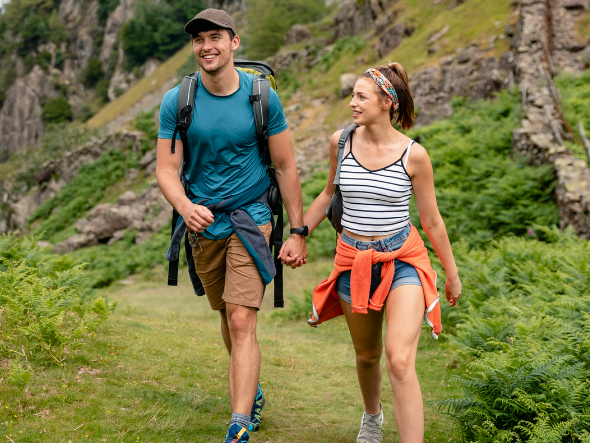
Walking is one of the simplest and most accessible outdoor activities. You can walk around your neighborhood, in a park, or on a trail. You can also hike in the mountains, forests, or deserts and enjoy the scenic views and wildlife. Walking and hiking can improve your cardiovascular fitness, lower your blood pressure and cholesterol, and help you burn calories.
Jogging or running
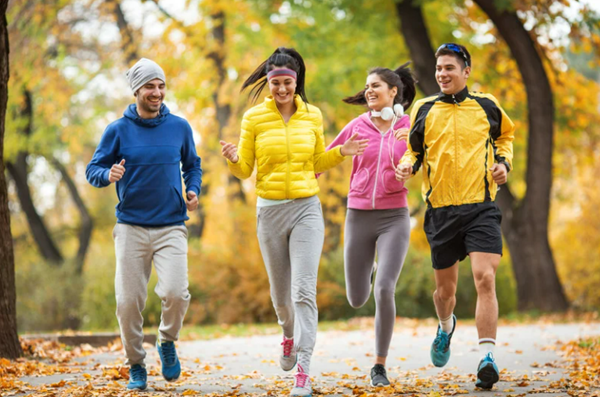
Jogging, or running, is another easy and effective outdoor activity. You can jog or run on the pavement, on the grass, or on a track. You can also join a running club or a race to challenge yourself and meet other runners. Jogging or running can strengthen your heart, lungs, and muscles, improve your endurance and speed, and reduce your risk of diabetes and heart disease.
Biking
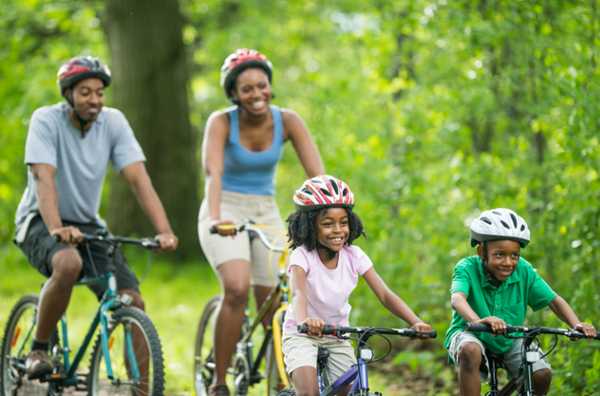
Biking is a fun and low-impact outdoor activity. You can bike on the road, on a bike path, or on a mountain trail. You can also rent a bike or join a bike tour to explore new places and cultures. Biking can improve your cardiovascular health, muscle tone, balance, and coordination, and prevent obesity and osteoporosis.
Swimming

Swimming is a refreshing and relaxing outdoor activity. You can swim in a pool, in a lake, or in the ocean. You can also try water aerobics, snorkeling, or surfing. Swimming can work out your whole body, improve your flexibility and posture, and relieve stress and tension.
Raking leaves or shoveling snow

Raking leaves or shoveling snow can be considered outdoor activities, too. They can help you keep your yard clean and tidy, and they can also give you a good workout. Raking leaves or shoveling snow can burn calories, strengthen your arms, legs, and core, and improve your cardiovascular health.
Ice skating or sledding

Ice skating or sledding can be fun and exhilarating outdoor activities in the winter. You can ice skate on a frozen pond, lake, or rink. You can also sled on a snowy hill, slope, or park. Ice skating or sledding can improve your balance, agility, and coordination and boost your mood and energy.
Cross-country skiing
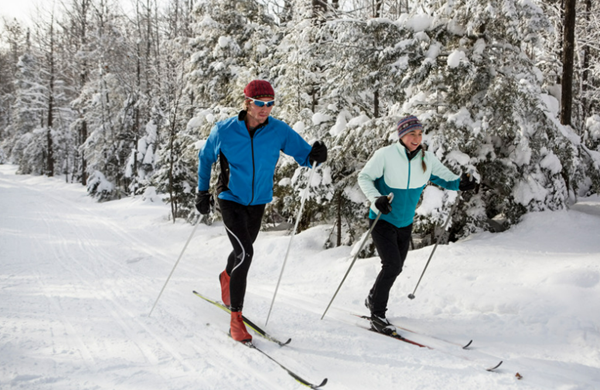
Cross-country skiing is another great outdoor activity in the winter. You can cross-country ski on groomed trails, open fields, or backcountry areas. You can also join a cross-country ski club or take take take a lesson to learn the skills and techniques. Cross-country skiing can improve your cardiovascular fitness, endurance, and strength,, and help you burn a lot of calories.
Camping
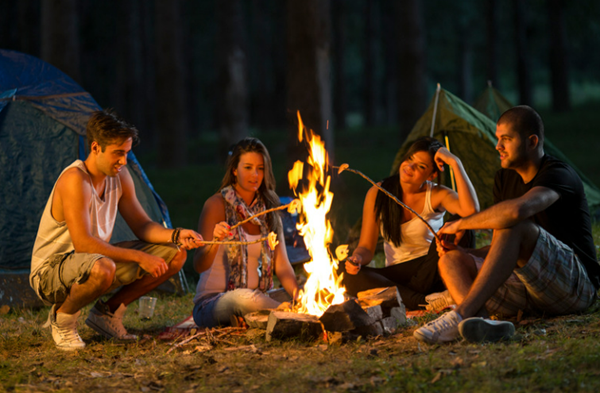
Camping can be a wonderful way to experience nature more fully. You can camp in a tent, a cabin, or an RV and enjoy the starry night and the sounds of wildlife. Camping can provide you with a sense of adventure, challenge, and accomplishment, as well as improve your survival skills and independence. Research suggests that camping can also enhance your psychological health and well-being by providing you with sensory stimulation, mental relaxation, and opportunities for learning and exploration.
Trekking
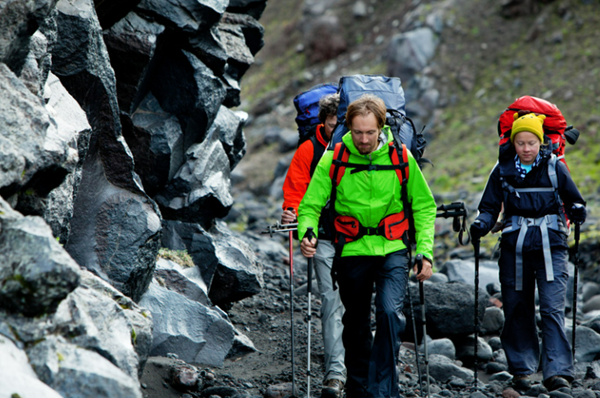
Trekking can be a fun and rewarding outdoor activity. You can hike to different destinations, such as waterfalls, lakes, or peaks, and admire the beauty and diversity of nature. Trekking can improve your cardiovascular fitness, endurance, and strength, as well as help you burn calories and fat. Trekking can also reduce stress, anxiety, and depression and increase your self-esteem and confidence.
How to stay safe and comfortable outdoors?
Before you head outdoors, make sure you are prepared and protected. Here are some tips to help you stay safe and comfortable outdoors:
- Check the weather forecast. Choose a day that is sunny, dry, and mild. Avoid going outdoors when it is too hot, cold, rainy, or windy. Dress appropriately for the weather and the activity. Wear layers that you can add or remove as needed. Wear sunscreen, sunglasses, and a hat to protect yourself from the sun. Wear gloves, a scarf, and a warm hat to protect yourself from the cold.
- Stay hydrated. Drink plenty of water before, during, and after your outdoor activity. Water can help you regulate your body temperature, prevent dehydration, and flush out toxins. Avoid drinking alcohol, caffeine, or sugary drinks, as they can dehydrate you and impair your performance.
- Warm up and cool down. Before you start your outdoor activity, do some light cardio and dynamic stretches to warm up your muscles and joints. This can help you prevent injuries and improve your performance. After you finish your outdoor activity, do some gentle stretches and walk around to cool down your body and prevent soreness.
- Start slowly and gradually. If you are new to outdoor activities, start with low-intensity and short-duration exercises, and gradually increase the intensity and duration as you get fitter and more comfortable. Listen to your body and stop or rest if you feel pain, fatigue, or discomfort. Don’t push yourself too hard or too fast, as this can increase your risk of injury and burnout.
- Be aware of your surroundings. Pay attention to the traffic, terrain, and wildlife around you. Follow the rules and signs of the area you are in. Stay on marked trails and paths. Avoid areas that are isolated, unsafe, or unfamiliar. Carry a map, a compass, a phone, and a whistle in case you get lost or need help. Tell someone where you are going and when you expect to return.
Enjoy the Fresh Air and Nature with Outdoor Activities
Outdoor activities can have many benefits for your physical and mental health. They can help you breathe better, sleep better, reduce depression, motivate you to exercise, boost your mental energy, enhance your immune health, improve your vision, and promote your emotional wellness.
There are many outdoor activities you can choose from, such as walking, hiking, jogging, running, biking, swimming, raking leaves, shoveling snow, ice skating, sledding, and cross-country skiing. To stay safe and comfortable outdoors, make sure you check the weather forecast, stay hydrated, warm up and cool down, start slowly and gradually, and be aware of your surroundings. So, what are you waiting for? Get outside and enjoy the fresh air and nature!
